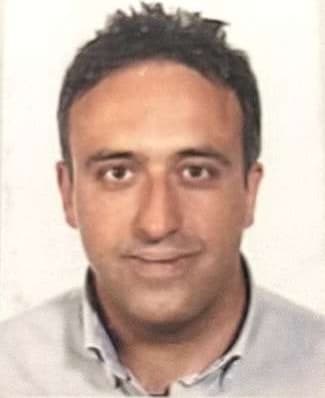Studying at the University of Verona
Here you can find information on the organisational aspects of the Programme, lecture timetables, learning activities and useful contact details for your time at the University, from enrolment to graduation.
Academic calendar
The academic calendar shows the deadlines and scheduled events that are relevant to students, teaching and technical-administrative staff of the University. Public holidays and University closures are also indicated. The academic year normally begins on 1 October each year and ends on 30 September of the following year.
Course calendar
The Academic Calendar sets out the degree programme lecture and exam timetables, as well as the relevant university closure dates..
| Period | From | To |
|---|---|---|
| I semestre (Lingue e letterature straniere) | Sep 30, 2019 | Jan 11, 2020 |
| II semestre (Lingue e letterature straniere) | Feb 17, 2020 | May 30, 2020 |
| Session | From | To |
|---|---|---|
| ESAMI LINGUE - sessione invernale | Jan 13, 2020 | Feb 15, 2020 |
| ESAMI LINGUE - sessione estiva | Jun 3, 2020 | Jul 25, 2020 |
| ESAMI LINGUE - sessione autunnale | Aug 24, 2020 | Sep 19, 2020 |
| Session | From | To |
|---|---|---|
| LAUREE LINGUE - sessione autunnale (a.a. 2018/19) | Nov 4, 2019 | Nov 9, 2019 |
| LAUREE LINGUE - sessione straordinaria (a.a. 2018/19) | Mar 30, 2020 | Apr 4, 2020 |
| LAUREE LINGUE - sessione estiva (a.a. 2019/20) | Jul 6, 2020 | Jul 11, 2020 |
| LAUREE LINGUE - sessione autunnale (a.a. 2019/20) | Nov 2, 2020 | Nov 7, 2020 |
| LAUREE LINGUE - sessione straordinaria (a.a. 2019/20) | Apr 7, 2021 | Apr 13, 2021 |
| Period | From | To |
|---|---|---|
| Festa Ognissanti (Lingue) | Nov 1, 2019 | Nov 1, 2019 |
| Sospensione delle lezioni | Nov 2, 2019 | Nov 2, 2019 |
| Vacanze di Natale (Lingue) | Dec 23, 2019 | Jan 6, 2020 |
| Vacanze di Pasqua (Lingue) | Apr 10, 2020 | Apr 14, 2020 |
| Festa della Liberazione (Lingue) | Apr 25, 2020 | Apr 25, 2020 |
| Festa del Lavoro (Lingue) | May 1, 2020 | May 1, 2020 |
| Sospensione delle lezioni | May 2, 2020 | May 2, 2020 |
| Festa del Santo Patrono (Lingue) | May 21, 2020 | May 21, 2020 |
| Sospensione delle lezioni | May 22, 2020 | May 23, 2020 |
| Festa della Repubblica (Lingue) | Jun 2, 2020 | Jun 2, 2020 |
| Vacanze estive (Lingue) | Aug 10, 2020 | Aug 15, 2020 |
Exam calendar
Exam dates and rounds are managed by the relevant Foreign Languages and Literatures Teaching and Student Services Unit.
To view all the exam sessions available, please use the Exam dashboard on ESSE3.
If you forgot your login details or have problems logging in, please contact the relevant IT HelpDesk, or check the login details recovery web page.
Should you have any doubts or questions, please check the Enrollment FAQs
Academic staff
 silvia.baroni@univr.it
silvia.baroni@univr.it
 stella.merlin@univr.it
stella.merlin@univr.it
 sara.paolini@univr.it
sara.paolini@univr.it
 massimo.scotti@univr.it
massimo.scotti@univr.it
Study Plan
The Study Plan includes all modules, teaching and learning activities that each student will need to undertake during their time at the University.
Please select your Study Plan based on your enrollment year.
1° Year
| Modules | Credits | TAF | SSD |
|---|
1st foreign language2nd foreign language1st foreign literature2nd foreign literature1 module to be chosen between2° Year activated in the A.Y. 2020/2021
| Modules | Credits | TAF | SSD |
|---|
1st foreign language2nd foreign language1st foreign literature2nd foreign literature1 module to be chosen between the following3° Year activated in the A.Y. 2021/2022
| Modules | Credits | TAF | SSD |
|---|
1st foreign language2nd foreign language1st foreign literature2nd foreign literature1 module among the following (philology related to 1st or 2nd foreign language)1 module to be chosen between the following| Modules | Credits | TAF | SSD |
|---|
1st foreign language2nd foreign language1st foreign literature2nd foreign literature1 module to be chosen between| Modules | Credits | TAF | SSD |
|---|
1st foreign language2nd foreign language1st foreign literature2nd foreign literature1 module to be chosen between the following| Modules | Credits | TAF | SSD |
|---|
1st foreign language2nd foreign language1st foreign literature2nd foreign literature1 module among the following (philology related to 1st or 2nd foreign language)1 module to be chosen between the following| Modules | Credits | TAF | SSD |
|---|
Legend | Type of training activity (TTA)
TAF (Type of Educational Activity) All courses and activities are classified into different types of educational activities, indicated by a letter.
English literature 3 (2021/2022)
Teaching code
4S002949
Teacher
Coordinator
Credits
9
Language
English
Scientific Disciplinary Sector (SSD)
L-LIN/10 - ENGLISH LITERATURE
Period
I semestre (Lingue e letterature straniere) dal Sep 27, 2021 al Jan 8, 2022.
Learning outcomes
The course, held in English, aims at introducing Students to the English Literature from the 16th century to the Restoration (1660), paying emphasis on some canonical literary texts. Besides, it will offer skills and abilities for the critical analysis of literary texts and their genres. The course objective is to provide a good knowledge of the literature of the period (historical context, texts, genres, literary movements and authors) and to develop in Students a capacity of analysis and argumentative abilities in relation to the various typologies of literary texts set in their literary, historical, and cultural context. At the end of the course, Student will be able to - analyse the examined literary texts setting them in their historical and cultural context; - discuss them in an argumentative way, with due consideration to contemporary literary conventions, and by applying a critical, knowledgeable, and aware approach to the specificity of the literary texts; - present the acquired competences in English, and in a coherent and clear way.
Program
EROS, POLITICS, AND POWER IN ENGLISH RENAISSANCE DRAMA
This module is centered on the period that, In England, ushers in early modernity: a period of radical upheavals - intellectual and material, religious and political - that mark the transition from the medieval to the modern. Theatre effectively embodies this intensely self-conscious, often violent and still engaging time, by addressing and interrogating all its major key-themes. This is brilliantly shown in the great tragic and problem plays of the Elizabethan and Jacobean period by Marlowe and Shakespeare selected for the course. These will be explored by focusing on the fil rouge of the agonistic relationship between the power of eros and the power of politics, that in its turn strongly involves a new, tragic approach to subjectivity, as well as an extraordinary tension between rhetoric and action, language and body.
The face-to-face classes, in English, will start from a contextual survey of the main themes and motifs realtive to the theme of the course, and will then focus on the scheduled primary texts. The students will be invited to participate, also through seminar-like moments of discussion and confrontation.
A) PRIMARY SOURCES:
-C. MARLOWE, "Edward II", M. Wiggings et al. (eds.), Bloomsbury Methuen Drama (2014)
-W. SHAKESPEARE, "Measure for Measure", N.W. Bawcutt (ed.), Oxford World's Classics (2008)
- W. SHAKESPEARE, "Antony and Cleopatra", M. Neill (ed.), Oxford World's Classics (2013)
B) CRITICAL BIBLIOGRAPHY:
-S. GUY-BRAY, "Introduction" (cf. New Mermaid edition above), pp.VII-XXVIII.
- N.W. BAWCUTT, in "Introduction" (cf. Oxford edition above): " 'Measure for Measure' as a Jacobean Play" (1-12) e "The Play" (42-63).
-M. NEILL, "Introduction" (cf. the Oxford edition above): "Reception" (1-5), "The Pattern of Anticlimax" (67-77), "The dislocation of identity" (78-88.)
C) HANDBOOK OF ENGLISH LITERARY HISTORY:
-A. SANDERS, "The Short Oxford History of English Literature", Clarendon Press, Oxford (1994): Ch. 3 ("Renaissance and Reformation: Literature 1510-1620)
NB: NON-ATTENDING STUDENTS WILL INTEGRATE (B) WITHE THE FOLLOWING, OBLIGATORY READINGS:
-T. CARTELLI, "Edward II" (158-173), in P: CHENEY (ed.), "The Cambridge Companion to Christopher Marlowe", Cambridge UP, 2004
-B. J. BAINES, "Assaying the Power of Chastity in 'Measure for Measure'", in Studies in English Literature, 1500-1900, Vol 30 (Spring 1990), No.2: 283-301 ( article downloadable from Jstor, data base in Frinzi Library)
-M. NEILL, in "Introduction" (cf. Oxford edition above): "The Play in perspective: Enobarbus as a choric fool" (89-94) e "The rhythms of nostalgia" (94-100)
***************************
USEFUL, THOUGH COMPLETELY OPTIONAL, SUGGESTIONS FOR READING:
- R.A. FOAKES, "Playhouses and Players",in A.R. Braunmuller & M. Hattaway (eds.), "The Cambridge Companion to English Renaissance Drama" , Cambridge UP, 1990
-N. JONES, "The Politics of Renaissance England", ch.1 (13-24), in A.F. KINNEY (ed.), "A Companion to Renaissance Drama", Blackwell, 2002
ALL THE CRITICAL TEXTS CITED ABOVE MAY BE ACCESSED THROUGH FRINZI LIBRARY
Bibliography
Examination Methods
The exam will be oral and in English. It will be centered on the topics of the module discussed during classes and on the texts scheduled in the syllabsu (parts A, B, C). The students must have their primary sources with them.
The exam will start with the request of reading and commenting on one of the passages dealt with in class.
Type D and Type F activities
To discover all the teaching activities accredited by the foreign teaching college click here
Career prospects
Module/Programme news
News for students
There you will find information, resources and services useful during your time at the University (Student’s exam record, your study plan on ESSE3, Distance Learning courses, university email account, office forms, administrative procedures, etc.). You can log into MyUnivr with your GIA login details: only in this way will you be able to receive notification of all the notices from your teachers and your secretariat via email and soon also via the Univr app.
Student login and resources
Gestione carriere
Assegnazione tutore
Attività accreditate D/F
Calendario didattico dettagliato
Cambio lingua curriculare
Competenze informatiche
Competenze linguistiche (prima e seconda lingua)
Competenze linguistiche in triennale (terza lingua CFU F)
Compilazione del piano didattico
Corso di Lingua portoghese
Erasmus+ e altre esperienze all'estero
Linguistic training CLA
Presentazione dei corsi di studio e Open day
Graduation
Saperi minimi
Stage e tirocini
Le attività di stage sono finalizzate a far acquisire allo studente una conoscenza diretta in settori di particolare interesse per l’inserimento nel mondo del lavoro e per l’acquisizione di abilità professionali specifiche.
Le attività di stage sono svolte sotto la diretta responsabilità di un singolo docente presso studi professionali, enti della pubblica amministrazione, aziende accreditate dall’Ateneo veronese.
I crediti maturati in seguito ad attività di stage saranno attribuiti secondo quanto disposto nel dettaglio dal “Regolamento d’Ateneo per il riconoscimento dei crediti maturati negli stage universitari” vigente.
- Tutte le informazioni in merito agli stage per futuri studenti sono disponibili alla pagina Stage e tirocini.
- Tutte le informazioni in merito agli stage per studenti iscritti sono pubblicate in MyUnivr - come fare per - stage e tirocini.
- Tutte le informazioni in merito agli stage per le aziende sono disponili alla pagina Stage e tirocini per azienze.
Ulteriori informazioni al seguente link https://www.univr.it/it/i-nostri-servizi/gestione-carriere-studenti-lingue-e-letterature-straniere/stage-e-tirocini-lingue-e-letterature-straniere

 +39 045802 8409
+39 045802 8409
















































